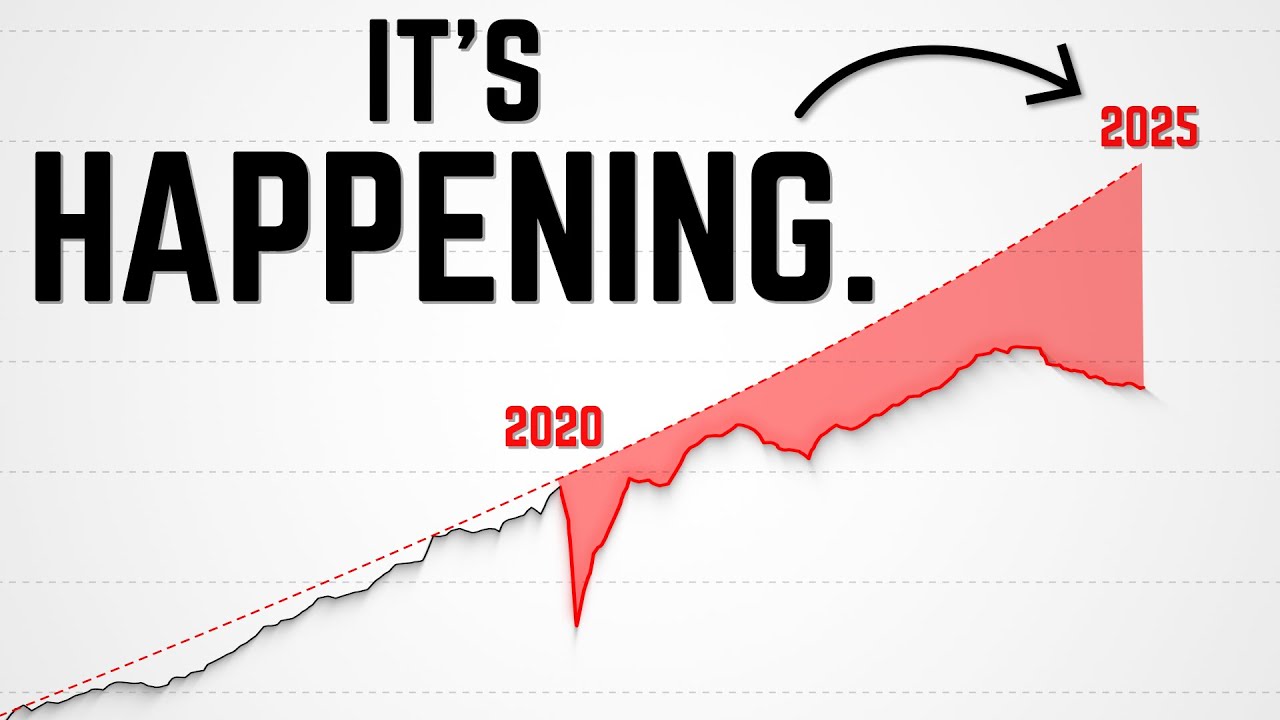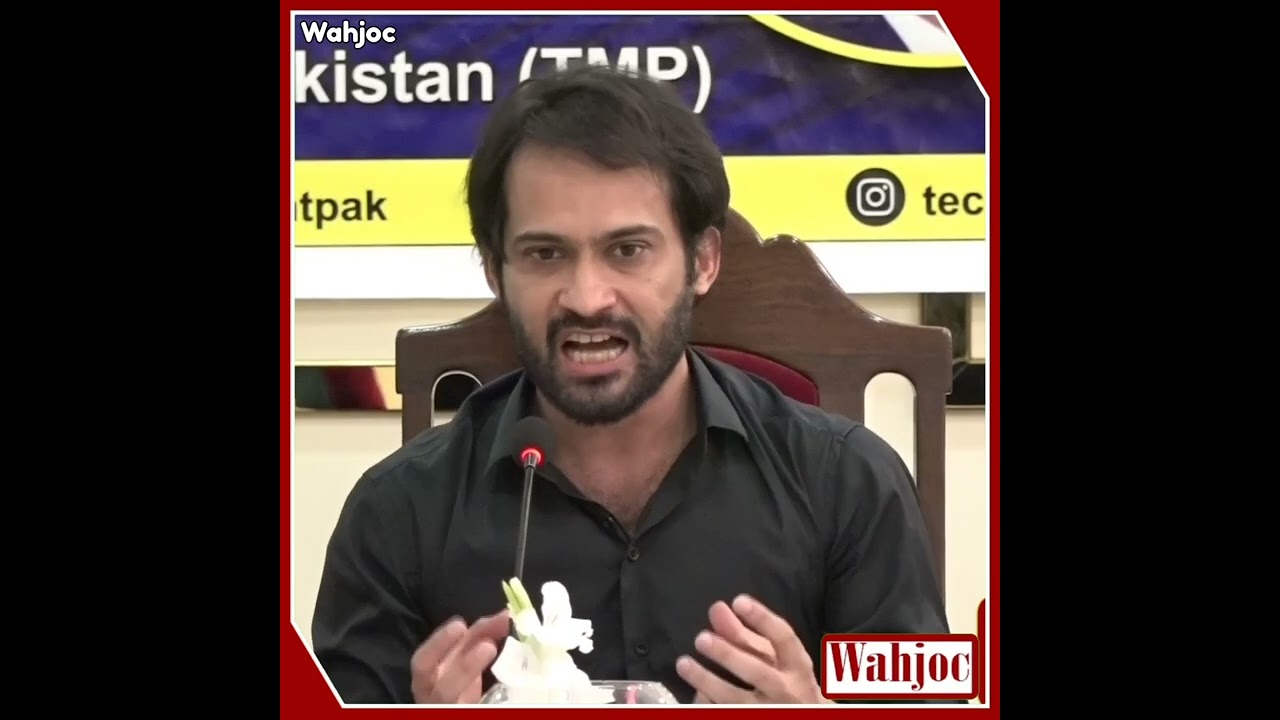Video
WARNING: Crypto in 2026 is About to Get Absurd..

WARNING: The Cryptocurrency Market is About to Get Absurd..
⭐ Follow Altcoin Daily on 𝕏: https://twitter.com/AltcoinDaily
🟠 Become a channel member & get access to perks:
https://www.youtube.com/channel/UCbLhGKVY-bJPcawebgtNfbw/join
🎁 Altcoin Daily Merch: https://m046hz-bk.myshopify.com
🟡 50% deposit bonus on first $100 on WEEX: https://www.weex.com/events/welcome-event?vipCode=oz5p&qrType=activity
🟣 Best Crypto Exchange To Trade ($12,000 Bonus): https://www.coinw.com/en_US/register?r=ALTCOINDAILY
✅ Bitunix (no kyc, $10,000 bonus): https://www.bitunix.com/register?vipCode=AltcoinDaily
🔴 $30k USDT bonus with Phemex with our link: https://phemex.com/a/k/ALTCOINDAILY30
🔵 $30k bonuses with our link – Buy & Trade Crypto on Bybit: https://partner.bybit.com/b/altcoindaily
🟢 $8k bonus on Bitget Exchange with our link: https://bonus.bitget.com/AltcoinDaily
Altcoin Daily in Spanish: www.youtube.com/@AltcoinDailyenEspanol
Follow Altcoin Daily:
www.twitter.com/AltcoinDaily
www.instagram.com/thealtcoindaily/
Join Altcoin Daily on Telegram: https://t.me/AltcoinDailyANN
Hit Like, Share, and Subscribe for more daily cryptocurrency news
Altcoin Daily, the best cryptocurrency news media online!
Video by Aaron:
www.instagram.com/aarontarnold/
www.twitter.com/aarontarnold
For business inquires email: info.altcoindailyio@gmail.com
Timestamp:
0:00 – WARNING: Crypto in 2026 is About to Get Absurd..
2:52 – Why this is bad?
3:18 – What will happen next? (predictions)
6:31 – Clarity Act news
6:54 – Cardano Founder gets emotional
9:23 – SEC Chair on Fox Business
11:08 – Fidelity says ‘Supercycle’
12:57 – Final thoughts
13:38 – Michael Saylor 2026 outlook
**Note: My overall opinion is that the name of the game is to accumulate as much Bitcoin as possible. Alts are interesting but a lot more speculative. I use them to accumulate more Bitcoin & Ethereum.
***********************************************************************
🏺Support The Channel!!🏺(We Get A Kickback From Affiliate Links)
Protect and store your crypto with a Ledger Nano:
https://shop.ledger.com/?r=4b0f6c5711dc
Robinhood exchange has crypto & stocks:
https://join.robinhood.com/aarona-78df3a8
***********************************************************************
Altcoin Daily, the best cryptocurrency news media online!
#bitcoin #cryptocurrency #news #btc #ethereum #eth #cryptocurrency #litecoin #altcoin #altcoins #forex #money #best #trading #bitcoinmining #invest #trader #cryptocurrencies #top #investing #business #success #investment #finance #coinbase #binance #stocks #wallstreet #investor #wealth #bullish #crash #collapse #economy #cnbc #cryptolive #altcoindaily
***NOT FINANCIAL, LEGAL, OR TAX ADVICE! JUST OPINION! I AM NOT AN EXPERT! I DO NOT GUARANTEE A PARTICULAR OUTCOME I HAVE NO INSIDE KNOWLEDGE! YOU NEED TO DO YOUR OWN RESEARCH AND MAKE YOUR OWN DECISIONS! THIS IS JUST EDUCATION & ENTERTAINMENT! USE ALTCOIN DAILY AS A STARTING OFF POINT!
This is NOT an offer to buy or sell securities.
Investing and trading in cryptocurrencies is very risky, as anything can happen at any time.
This information is what was found publicly on the internet. This information could’ve been doctored or misrepresented by the internet. All information is meant for public awareness and is public domain. This information is not intended to slander, harm or defame any of the actors involved but to show what was said through their social media accounts. Please take this information and do your own research.
*The channel is not responsible for the performance of sponsors and affiliates.
Most of my crypto portfolio is Bitcoin, then Ethereum, but I hold many cryptocurrencies, possibly ones discussed in this video.
cryptocurrency, crypto, altcoin, altcoin daily, news, best investment, top altcoins, best crypto investment, ethereum, xrp, crash, crash, price, prediction, podcast, interview, finance, stock, investment, too late, bitcoin, cryptocurrency news, bitcoin news, cryptocurrency news media online, best crypto investments, 2026 prediction, should I buy ethereum?, blackrock, donald trump, coin bureau, binance, coinbase, trading crypto, trade, make money, cryptosrus, bitcoin today, bitcoin cnbc, altcoin news,
source
Video
Who is Real Satoshi Nakamoto?? #informative #bitcoin

No one knows who Satoshi Nakamoto is even today, but why should it matter to us who Satoshi Nakamoto actually is?
Look, the last time Satoshi Nakamoto made an announcement was in 2011, saying that their work on Bitcoin was complete.
Since then, no one knows what happened to them, which makes everyone wonder if Satoshi Nakamoto is even alive today.
If they aren’t alive today, it would mean that there won’t be any changes to the functioning of Bitcoin.
The absence of Satoshi Nakamoto is considered a positive sign for Bitcoin, and it ensures their mysterious reputation remains intact.
But even if Satoshi Nakamoto is alive, no one knows if they were a single person or a group.
Many theories even suggest that the CIA was behind Satoshi Nakamoto, or that the CIA itself is Satoshi.
In any case, if the truth about Satoshi Nakamoto were to come out, Bitcoin would most likely lose its mysterious and safe image.
But what are your thoughts on Satoshi Nakamoto’s identity?
source
Video
A Once in a Lifetime Economic Reset is Coming.

🎉 5 Years of Bravos Research! GET 30% OFF 🎉
👉 https://go.bravosresearch.com/4gFdbm5 (EXPIRING Oct 3, 2025 at 11:59pm ET)
Subscribing gives you ACCESS to:
✅ All our ACTIVE trade ideas
🔔 Trade alerts on any adjustments and NEW trades
📊 Our short-medium-long term outlooks on the stock market (3 episodes a week)
⚠️ Emergency updates on market opportunities
🎓 A TON of education on becoming a profitable trader
——
📌 Our Go-To Platforms:
🏆 Interactive Brokers – The top choice for serious traders!
👉 https://go.bravosresearch.com/IBKR
📈 TradingView – The ultimate charting platform. Get $15 OFF
👉 https://go.bravosresearch.com/TradingView
——
📌 Crypto Exchanges:
🔥 Trade on Blofin – Get up to $3,500 in bonuses, No KYC or VPN required
👉 https://go.bravosresearch.com/blofin
🟢 Trade on Bitunix – NO KYC and highly liquid | Get a free $100 after you first $500 deposit!
👉 https://go.bravosresearch.com/BitunixBonus
——
♟️ The Charts and Analysis in this Video are available at https://bravosresearch.com/the-macro-report/a-once-in-a-lifetime-economic-reset-is-coming/
——
📣 Follow Bravos Research:
𝕏: https://www.x.com/bravosresearch
Linkedin: https://www.linkedin.com/company/bravos-research/
Peter’s LinkedIn: https://www.linkedin.com/company/peter-massaut
Facebook: https://www.facebook.com/bravosresearch/
TikTok: https://www.tiktok.com/@bravosresearch
Instagram: https://www.instagram.com/bravosresearch
——
📹 Want to produce videos just like this? Reach out to info@bravosmedia.com
——
DISCLAIMER: This video is for informational and entertainment purposes only. We are not financial advisers, and you should do your own research and go through your own thought process before investing in a position. Trading is risky; best of luck!
source
Video
CRYPTO TRAP! They Are Lying To You About This Bitcoin Crash

LIMITED TIME:
🟡 50% deposit bonus on first $100 (sign up on WEEX): https://www.weex.com/events/welcome-event?vipCode=oz5p&qrType=activity
🎁 Altcoin Daily Merch:
https://m046hz-bk.myshopify.com
✅ Bitunix (no kyc, $100,000 bonus): https://www.bitunix.com/register?vipCode=AltcoinDaily
🟦 Start Trading on Polymarket (#1 Prediction Market): https://polymarket.com?via=altcoin-daily
🟣 50% deposit bonus on first $10,000 – (sign up on CoinW): https://www.coinw.com/module/AltcoinDaily?r=26418586
🟡 50% deposit bonus on first $100 (sign up on WEEX): https://www.weex.com/events/welcome-event?vipCode=oz5p&qrType=activity
✅ Bitunix (no kyc, $100,000 bonus): https://www.bitunix.com/register?vipCode=AltcoinDaily
🔵 Buy, Sell, & Trade Crypto on Coinbase:
https://advanced.coinbase.com/join/U5FN8P5
👉🔒 Get Ledger Wallet: Best Way to Keep your Crypto Safe!
https://www.ledger.com/?r=29fd4d75e9bc
🟣 $30,000 USDT exclusive deposit bonus with Phemex – Buy, Sell, Trade Crypto: https://phemex.com/a/k/ALTCOINDAILY30
🔴 Altcoin Daily in Spanish: https://www.youtube.com/@AltcoinDailyenEspanol
Follow Altcoin Daily on X: https://x.com/AltcoinDaily
Follow Altcoin Daily on Instagram: https://www.instagram.com/thealtcoindaily/
Video by Austin:
Follow Austin on Instagram: https://www.instagram.com/theaustinarnold/
Follow Austin on X: https://twitter.com/AustinArnol
TimeStamps:
00:00 Intro
00:25 How Long Will The Bitcoin & Crypto Crash Go?
06:05 They Are Lying To You About This Bitcoin Crash
***********************************************************************
#Bitcoin #Cryptocurrency #News #Ethereum #Invest #Metaverse #Crypto #Cardano #Binance #Chainlink #Polygon #Altcoin #Altcoins #DeFi #CNBC #Solana
***NOT FINANCIAL, LEGAL, OR TAX ADVICE! JUST OPINION! I AM NOT AN EXPERT! I DO NOT GUARANTEE A PARTICULAR OUTCOME I HAVE NO INSIDE KNOWLEDGE! YOU NEED TO DO YOUR OWN RESEARCH AND MAKE YOUR OWN DECISIONS! THIS IS JUST ENTERTAINMENT! USE ALTCOIN DAILY AS A STARTING OFF POINT!
Bitunix, WEEX, Binance are exchange partners for the channel.
Polymarket is a channel partner.
*The channel is not responsible for the performance of sponsors and affiliates.
Disclosures of Material holdings:
Most of my crypto portfolio is Bitcoin, then Ethereum, but I hold many cryptocurrencies, possibly ones discussed in this video.
Material holdings over $5000 (in no particular order): BTC, ETH, SOL, MINA, DOT, SUPER, XCAD, LINK, INJ, BICO, METIS, SIS, BNB, PMX, LMWR, WMTx, HEART, TET, PAID, BORG, COTI, ADA, ONDO, ESE, ZKL, SUPRA, CELL, CTA, COOKIE, RSC, ATH, TAO.
Altcoin Daily is an ambassador for XBorg, Supra, WMTx.
This information is what was found publicly on the internet. This information could’ve been doctored or misrepresented by the internet. All information is meant for public awareness and is public domain. This information is not intended to slander harm or defame any of the actors involved but to show what was said through their social media accounts. Please take this information and do your own research.
bitcoin, cryptocurrency, crypto, altcoins, altcoin daily, blockchain, best investment, top altcoins, altcoin, ethereum, best altcoin buys, bitcoin crash, xrp, cardano, 2026, ripple, buy bitcoin, buy ethereum, bitcoin prediction, cnbc crypto, bitcoin crash, cnbc, crypto news, crypto crash, crypto expert, best crypto, crypto today, bitcoin price, bitcoin crash, bitcoin ta, crypto buy now, crypto expert, bloomberg crypto, ethereum news, fox business crypto, trading crypto, fed, jerome powell, qe, crypto bubble,
source
Video
Most Batsh*t Crazy Woman I’ve Ever Met | Financial Audit

▶ The story continues… and wow, she’s the craziest woman I’ve ever met. She threatened to make MULTIPLE people cheat on their spouses… she’s crazy. Watch here: https://www.youtube.com/channel/UCLe_q9axMaeTbjN0hy1Z9xA/join
▶▶ *FREE TRIAL* To make our classes and budgeting app *more affordable*, we bundled them together for an *80% DISCOUNT* and for this month only, you can try DollarWise Central for *free* – check it out here and change your life: https://dollarwise.com/dollarwise-central/
▶▶▶Download the *DollarWise Budgeting App* today: *Apple:* https://apple.co/4iChGhr *Google Play:* https://bit.ly/sb-googleplay Don’t overcomplicate this crap! All you need is an automated / SIMPLE budget.
▶▶▶▶ *AND REMEMBER* those who sign up for DollarWise Premium *annual* get a signed version of the Cook Book, just submit proof of purchase here: https://tally.so/r/3xzPq5
Build credit fast with 80% off the first month (that’s just $1!) at https://getkikoff.com/caleb today. Thanks to Kikoff for sponsoring us!
___________________________________________
▶EDUCATION:
1. Get your own free Hammer Financial Score: https://www.calebhammer.com
2. Get all of my educational programs for a much lower cost here, including the premium version of my budgeting app: https://dollarwise.com/dollarwise-central/
___________________________________________
▶RESOURCES
1. *I’VE MOVED MY INVESTMENTS TO WEBULL* do the same and transfer to my investing app of choice here: https://www.webull.com/k/Caleb and you get: *Cash bonus of $200 – $30,000* depending on initial funding amount, up to 8.1% APY, and up to 3.5% IRA Match.
2. Checking & Savings: Get up to $500^ before payday when you sign up and set up direct deposit. No credit check. No interest*. No mandatory fees: https://clickurl.ca/caleb-mypay
3. CourseCareers: Land a high-paying job with no experience or degree by going through an affordable online course https://coursecareers.com/CalebHammer
4. Get $20 from Acorns for free: sign up to get your bonus https://acorns.com/caleb
5. The credit building debit card: First 100,000 people to sign up for Fizz with code: HAMMER10 get $10: https://www.joinfizz.com/caleb (paid ad)
6. Helium Mobile: save a ton on your phone bill, sign up and get a FREE plan when using promo code CALEB https://hellohelium.com/
7. Online security: Protect your online privacy and security NOW and for free by following my link Aura: https://aura.com/hammer
8. Get an exclusive HighLevel 30-day trial: https://gohighlevel.com/calebhammer
___________________________________________
Chapters:
00:00 Intro
09:04 what even is this conversation
24:48 girl thinks she onto something
37:46 what secrets does her bank account hold
54:23 her WHATS were WHAT
01:07:23 what is going on lol
01:30:49 Budget!!
___________________________________________
▶More Content
1. Financial Audit Follow-Ups here: https://www.youtube.com/@calebhammerclips
2. Caleb Hammer Livestreams: https://linktr.ee/calebhammerlive
3. Livestream Cutdown VODs: https://www.youtube.com/@livecalebhammer
___________________________________________
▶EXTRA
1. My socials: https://stan.store/calebhammer
2. Want to be a guest on Financial Audit? We film weekdays in our studio in Austin, Texas (in person only)! To apply, visit: http://calebhammer.com/apply
___________________________________________
▶*Some of the links and other products that appear in this video are from companies for which Caleb Hammer will earn an affiliate commission or referral bonus. This is not investment advice.
▶Sponsorship and business inquiries: business@calebhammer.com
source
Video
Father Of Crypto currency Trade & Mining In Pakistan | Waqar Zaka | Wahjoc Tech

Bitcoin Important Facts | Crypto currency Trade & Mining | Waqar Zaka | Wahjoc Tech
#Bitcoin
#Crypto
#CryptoCurrency
#WaqarZaka
#WahjocTech
#Trade&Mining
#BitCoinImportantFacts
source
Video
The Psychology of Money in 33 minutes | Animated Book Summary

This video is a 33 minutes animated book summary of The Psychology of Money by Morgan Housel.
🟨 UPGRADE YOUR FINANCIAL LIFE
Understanding money is one thing. Managing it well is another.
The MONEY MASTERY SYSTEM 1.0 bridges the gap between what you know and what you do.
👉 https://www.antidote-thechannel.com/money-mastery-system
📖 The Psychology of Money 👉 https://amzn.to/4aFkZD8
▪️▪️▪️▪️▪️▪️▪️▪️▪️▪️▪️▪️▪️▪️▪️▪️▪️▪️▪️▪️▪️
This full animated book summary of The Psychology of Money by Morgan Housel reveals the psychological traps that keep people broke, uncovers the hidden forces behind your financial decisions, and shows you how to build lasting wealth through smarter habits and a better mindset.
▪️▪️▪️▪️▪️▪️▪️▪️▪️▪️▪️▪️▪️▪️▪️▪️▪️▪️▪️▪️▪️
⏰ Timestamps:
0:00 – Introduction
1:01 – Act 1 – The False Confidence
1:18 – Trap 1. You Think You’re Logical
2:39 – Trap 2. You Think You’re in Control
5:02 – Trap 3. You Believe the Story, Not the Reality
6:51 – Trap 4. You Think You’re a Spreadsheet
8:05 – Act 2 – The Emotional Hijack
8:20 – Trap 5. You Chase More Than You Need
10:44 – Trap 6. You Think Stuff Will Make You Admired
12:09 – Trap 7. You Think Looking Rich Means Being Rich
13:36 Trap 8. You Fall for Fear Disguised as Wisdom
15:18 – Act 3 – The Hidden Rules of Money
15:35 – Trap 9. You Think Saving Needs a Goal
17:36 – Trap 10. You Want the Gains—But Not the Ride
19:05 – Trap 11. You Think Getting Rich Is the Hard Part
20:53 – Trap 12. You Overestimate Your Plan
22:18 – Act 4 – The Long Game
22:30 – Trap 13. You Underestimate the Power of Time
24:01 – Trap 14. You Ignore How Rare Success Really Is
26:03 – Trap 15. You Buy Stuff and Sell Your Time
27:42 – Act 5 – Become the Person Who Wins Long Term
27:56 – Trap 16. You Expect the Market to Be Predictable
29:14 – Trap 17. You Forget That You’ll Change
31:01 – Trap 18. You Copy People Who Aren’t Playing Your Game
📈📈📈📈📈📈📈📈📈📈📈📈
Notion Tools by Antidote:
🟨 Premium Blueprint “12 Weeks Year Planner – Achieve More in 12 Weeks Than Most Do in a Year!” 👉 https://www.antidote-thechannel.com/12-weeks-year-planner
🟨 Money Mastery System 1.0
👉 https://www.antidote-thechannel.com/money-mastery-system
More from us:
🟨 Premium Blueprint “Master the Art of Human Behavior” 👉 https://www.antidote-thechannel.com/premium-blueprint-human-nature
🟩 Support the Channel : 😊☕ https://buymeacoffee.com/antidote_thechannel
🏵️🏵️🏵️🏵️🏵️🏵️🏵️🏵️🏵️🏵️🏵️
CREDITS:
🔵Characters designed by @Macrovector
🔵Musics from Artlist
#booksummary #morganhousel #thepsychologyofmoney #moneymindset #psychology #personalgrowth
Disclaimer:
I’m not a financial advisor. This content is for educational purposes only and is not financial advice. For guidance specific to your situation, please consult a licensed professional.
Disclosure:
Some links above are Amazon affiliate links. I may earn a small commission if you purchase (at no extra cost to you)
source
Video
Crypto currency is future | By Sandeep Maheshwari | Whatsapp status #shorts

Crypto currency is future | By Sandeep Maheshwari | Whatsapp status #shorts
#sandeepmaheshwari
#questionapproach
☑️ Copyright disclaimer under section 107 of the copyright act 1997, allowence is made for “fair use” for purpose such as criticism, comment, teaching and research. Fair use is a use permitted by statute that might otherwise be infringing, Non profit, educational or personal use tips the balance in favour of fair use.
source
Video
His Wife Stormed Off Financial Audit

▶ *MAJOR ANNOUNCEMENT* To make our classes and budgeting app *more affordable*, we bundled them together for an *80% DISCOUNT* – check it out here and change your life: https://dollarwise.com/dollarwise-central/ plus you get the cookbook signed by me when you join!
▶Oh my goodness… he’s been hiding stuff behind her back, and she goes for his THROAT- this is an intense post-show, watch here: https://www.youtube.com/channel/UCLe_q9axMaeTbjN0hy1Z9xA/join
▶▶Download the *DollarWise Budgeting App* today: *Apple:* https://apple.co/4iChGhr *Google Play:* https://bit.ly/sb-googleplay Don’t overcomplicate this crap! All you need is an automated / SIMPLE budget.
▶▶▶ *AND REMEMBER* those who sign up for DollarWise Premium *annual* get a signed version of the Cook Book, just submit proof of purchase here: https://tally.so/r/3xzPq5
Use Yrefy to refinance your private student loans today at: https://yrefy.com/hammer or call (888) Yrefy-78
Helium Mobile: Sign up (even the FREE plan) & get $10 in Cloud Points with code CALEB: https://app.heliummobile.com/o6WA/vdqufw1r
▶▶▶Download the *DollarWise Budgeting App* today *Apple:* https://apple.co/4iChGhr *Google Play:* https://bit.ly/sb-googleplay
▶ Watch this episode’s *POST* *SHOW* + get *MORE* Financial Audit here: https://www.youtube.com/channel/UCLe_q9axMaeTbjN0hy1Z9xA/join
___________________________________________
▶EDUCATION:
1. Get all of my educational programs for a much lower cost here, including the premium version of my budgeting app: https://dollarwise.com/dollarwise-central/
2. *The best budgeting program online: https://calebhammer.com/budget
3. Get my investing class and I’ll give you a $100 towards investing: https://calebhammer.com/investing
4. Win with GOOD debt and get out of BAD debt correctly, learn in my debt program: https://calebhammer.com/formula
5. Everything you need for buying your first home to buy your first investment property:
https://calebhammer.com/realestate/
6. Get your own free Hammer Financial Score: https://www.calebhammer.com
___________________________________________
▶RESOURCES
1. *I’VE MOVED MY INVESTMENTS TO WEBULL* do the same and transfer to my investing app of choice here: https://www.webull.com/k/Caleb and you get: *Cash bonus of $200 – $30,000* depending on initial funding amount, up to 8.1% APY, and up to 3.5% IRA Match.
2. Checking & Savings: Get up to $500^ before payday when you sign up and set up direct deposit. No credit check. No interest*. No mandatory fees: https://clickurl.ca/caleb-mypay
3. CourseCareers: Land a high-paying job with no experience or degree by going through an affordable online course https://coursecareers.com/CalebHammer
4. Get $20 from Acorns for free: sign up to get your bonus https://acorns.com/caleb
5. The credit building debit card: First 100,000 people to sign up for Fizz with code: HAMMER10 get $10: https://www.joinfizz.com/caleb (paid ad)
6. Helium Mobile: save a ton on your phone bill, sign up and get a FREE plan when using promo code CALEB https://hellohelium.com/
7. Online security: Protect your online privacy and security NOW and for free by following my link Aura: https://aura.com/hammer
8. Therapy: Make SonderMind your mental health home in 2025. Sign up at: https://pages.sondermind.com/caleb/
9. Get an exclusive HighLevel 30-day trial: https://gohighlevel.com/calebhammer
___________________________________________
Chapters:
00:00 Intro
09:35 Financial Audit Flashback
20:06 just speak your mind!!
29:13 ah yes his immigrant (derogatory) wife
40:01 this guy is just sick
56:47 he said what we were all thinking
01:06:19 calebs gonna crashout
01:23:02 lol
01:38:52 will they walk away with learning anything?
___________________________________________
▶EXTRA
1. Financial Audit Follow-Ups here: https://www.youtube.com/@calebhammerclips
2. My socials: https://stan.store/calebhammer
3. Want to be a guest on Financial Audit? We film weekdays in our studio in Austin, Texas (in person only)! To apply, visit: http://calebhammer.com/apply
___________________________________________
▶*Some of the links and other products that appear in this video are from companies for which Caleb Hammer will earn an affiliate commission or referral bonus. This is not investment advice.
▶Sponsorship and business inquiries: business@calebhammer.com
source
Video
Skisia2 – money dance 2 ft Underaiki

#haciendola #nasti
Prod: @AGsixteen
Directed by: @hablamedelucas
Mix & Master: @frixiboi
source
Video
How to start crypto investment with just 500 rupees | Crypto trading for beginners | Trading School

In this video of Trading School Official you will know about how to start investment in crypto with just 500 rupees.
#shorts
#stocktak
#stockmarket
#sharemarket
#stocktakk
#tradingschool
Topic covered :
crypto investment
crypto
buy crypto
crypto trading
Disclaimer – All views in the videos or post are my personal opinion, not any type of investment advice, do your own research before making any decision.
I’m not a SEBI registered investment advisor.
source
-

 Crypto World7 days ago
Crypto World7 days agoSmart energy pays enters the US market, targeting scalable financial infrastructure
-

 Politics7 days ago
Politics7 days agoWhy is the NHS registering babies as ‘theybies’?
-

 Video3 days ago
Video3 days agoWhen Money Enters #motivation #mindset #selfimprovement
-

 Fashion6 days ago
Fashion6 days agoWeekend Open Thread – Corporette.com
-

 Tech2 days ago
Tech2 days agoWikipedia volunteers spent years cataloging AI tells. Now there’s a plugin to avoid them.
-

 NewsBeat7 days ago
NewsBeat7 days agoDonald Trump Criticises Keir Starmer Over China Discussions
-

 Politics4 days ago
Politics4 days agoSky News Presenter Criticises Lord Mandelson As Greedy And Duplicitous
-

 Crypto World6 days ago
Crypto World6 days agoU.S. government enters partial shutdown, here’s how it impacts bitcoin and ether
-

 Sports5 days ago
Sports5 days agoSinner battles Australian Open heat to enter last 16, injured Osaka pulls out
-

 Crypto World5 days ago
Crypto World5 days agoBitcoin Drops Below $80K, But New Buyers are Entering the Market
-

 Crypto World4 days ago
Crypto World4 days agoMarket Analysis: GBP/USD Retreats From Highs As EUR/GBP Enters Holding Pattern
-

 Business12 hours ago
Business12 hours agoQuiz enters administration for third time
-

 Crypto World6 days ago
Crypto World6 days agoKuCoin CEO on MiCA, Europe entering new era of compliance
-
Business6 days ago
Entergy declares quarterly dividend of $0.64 per share
-

 Sports4 days ago
Sports4 days agoShannon Birchard enters Canadian curling history with sixth Scotties title
-

 NewsBeat19 hours ago
NewsBeat19 hours agoStill time to enter Bolton News’ Best Hairdresser 2026 competition
-

 NewsBeat4 days ago
NewsBeat4 days agoGAME to close all standalone stores in the UK after it enters administration
-

 NewsBeat3 days ago
NewsBeat3 days agoUS-brokered Russia-Ukraine talks are resuming this week
-

 Crypto World2 days ago
Crypto World2 days agoRussia’s Largest Bitcoin Miner BitRiver Enters Bankruptcy Proceedings: Report
-

 Crypto World13 hours ago
Crypto World13 hours agoHere’s Why Bitcoin Analysts Say BTC Market Has Entered “Full Capitulation”





